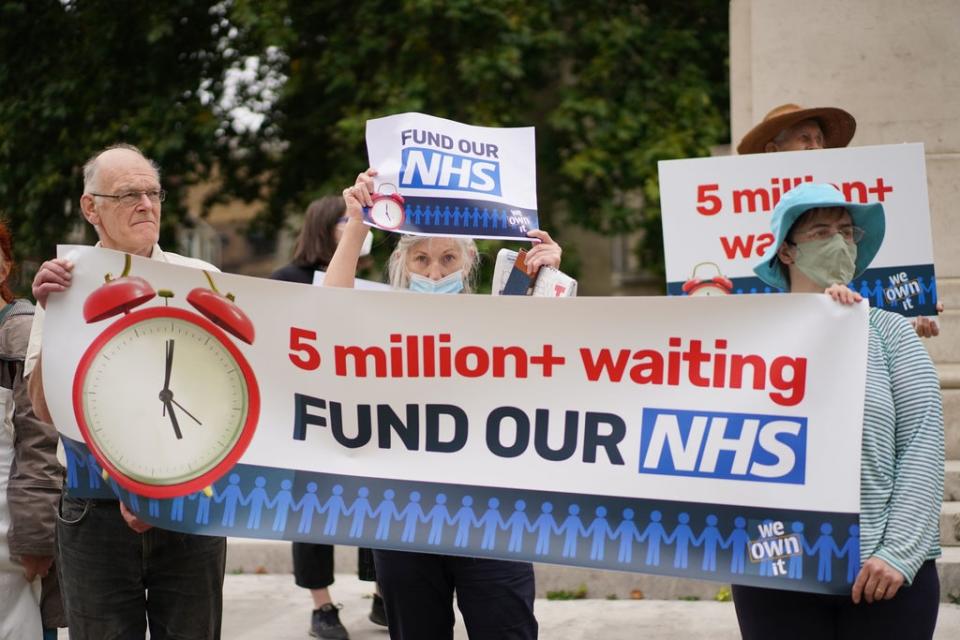Covid effect drives health insurance stampede among young adults

Young adults are turning to private healthcare in droves as Covid, NHS waiting times and warnings of a difficult winter hit home, new figures suggest.
The average age of those investing in private medical or health insurance (PMI), which covers the cost of private medical care from diagnosis to treatment of acute medical problems, is now only 33 years old.
Dropping from the age of 40 this time last year – after the initial surge of Covid – the numbers suggest younger adults are increasingly concerned about how they would deal with a medical issue, despite the waning threat from the pandemic.
Waiting times for planned hospital procedures through public services now range from 30 weeks to over a year in some areas as NHS medics continue working to clear the backlog created by Covid.
A record 5.6 million people are currently on waiting lists for treatment, with another 150,000 people being newly added every month. The Institute for Fiscal Studies has warned that 14 million people could be waiting for treatment by this time next year.
A&E admissions are also high as a result of people having to wait longer for treatment. And this week, new concerns were raised about the availability of medical supplies this winter thanks to the challenges facing global chains, such as Brexit and the possibility of a winter wave.
But with only 13 per cent of Britons bringing an existing health insurance policy into the pandemic year, patients without cover are turning to loans, savings and even crowd funding to pay for procedures in private medical facilities.
“Perceptions around private medical insurance were already changing, but there has certainly been a noticeable shift in the way people are actively investing in healthcare since Covid-19 arrived in the UK,” says Richard Jones, of GoCompare health insurance.
Taking out a private medical insurance policy can help cover the cost of private treatment for pre-agreed conditions through the payment of a monthly or annual premium, and can support a quicker diagnosis and other routine treatments.
It is easily confused with critical illness cover for example, which pays out a lump sum for a policyholder to use as they see fit when diagnosed with a medical condition from a pre-agreed list or income protection, which replaces a monthly salary if the policyholder can no longer work for reasons including ill health.
There are also health cash plans, often used for routine dental work, for example, which involves paying a monthly fee to cover anticipated expenses such as check-ups.
PMI cover can be provided for on an individual, family, joint or international basis, and is also offered by some employers as an added benefit for employees.
Conditions covered within a policy will vary depending on the kind of cover provided for, but might typically include in-patient treatments like routine health checks, tests, overnight hospital stays and out-patient treatment.
Having one type of insurance doesn’t exclude policyholders from buying others or from using NHS services as appropriate.
“How private healthcare works, what it actually covers and how premiums are calculated, investing in a private medical insurance policy could feel like a bit of a minefield, not least in the current climate,” Jones adds.
“It’s important to remember, for example, that for chronic conditions and pre-existing conditions, or in emergency situations, there will always be a need to access public health services even if you are considering taking out a private policy,” he says.
Personal protection policies like PMI are riddled with jargon, confusion and limitations, however, with financial experts urging buyers to get advice before proceeding.
As with all insurance, comparisons should be made based on the details of the policy rather than the bottom line.
Meanwhile, the private medical industry hasn’t been spared the impact of the pandemic either, with procedures continuing to face cancellation and delay.
And premiums, which the Association of British Insurers calculated had already risen by 15 per cent in the four years to 2019, are expected to continue increasing, with implications for those paying for their own cover as well as those who get the benefit through work.
Last week the Financial Conduct Authority itself said its staff would have to pay an excess if they used their employee PMI cover from 2022, after it revealed the premiums it pays have almost doubled in the last five years thanks to rising use and the cost of treatment.

 Yahoo Finance
Yahoo Finance 